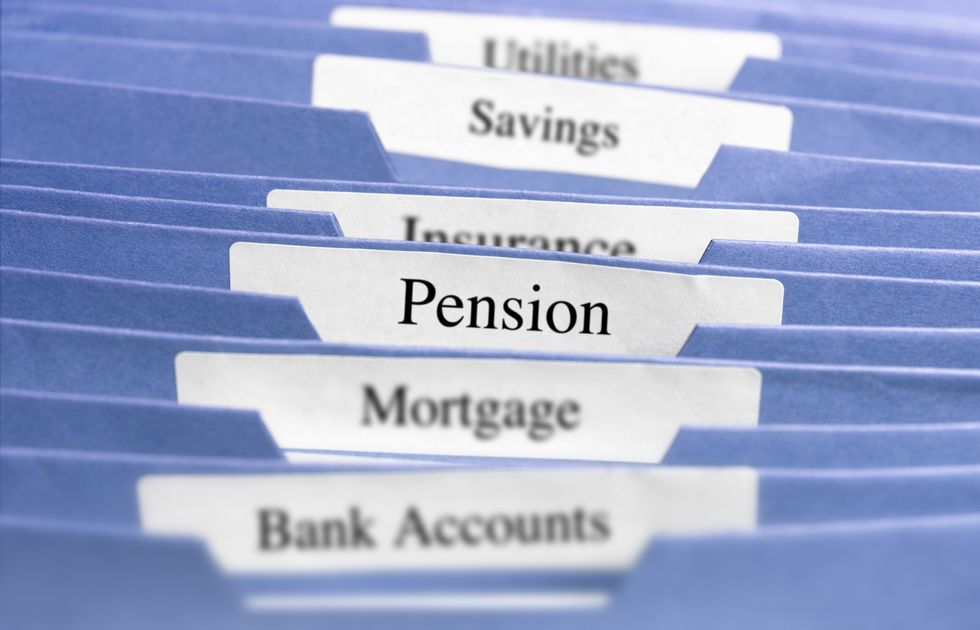Only one in ten people believe the state pension will not exist when they get to state pension age
GETTY
A recent survey has shown that some Britons believe the state pension will still be in place when they retire, however it will not be under triple lock system
Don't Miss
Most Read
Trending on GB News
The state pension system is facing mounting pressure from an ageing population and demographic challenges which has raised significant concerns about its sustainability.
Only one in ten people believe the state pension will not exist when they get to state pension age, according to a recent survey by Hargreaves Lansdown, while a quarter remain uncertain about its future.
The warnings come as debate intensifies over the long-term sustainability of the pension triple lock, with experts questioning whether the current system can be maintained.
Helen Morrissey, head of retirement analysis at Hargreaves Lansdown said: "The state pension forms the very backbone of our retirement income - there are very few people who are not reliant on it to some extent.
"However, a combination of an ageing population and shrinking workforce has put it under pressure, leading to concerns as to how it can remain sustainable long-term.
"There is ongoing debate as to whether the triple lock should remain as the measure used to uprate the state pension or whether it is too expensive.
"Other rumours centre on whether state pension age will need to rise further or if state pension should actually be means-tested."

The addition of 220,000 new pension recipients has intensified concerns about the system's sustainability
GettyNew figures from the Department for Work and Pensions (DWP) show 12.9 million people were receiving the state pension in May 2024, marking a 1.7 per cent increase from the previous year.
The addition of 220,000 new pension recipients has intensified concerns about the system's sustainability, with experts saying it will only create extra pressure on the public finances.
Ian Cook, a chartered financial planner at Quilter Cheviot, said: "While the policy is undeniably popular, it raises critical questions about fiscal sustainability."
Under this triple lock, the state pension rises each April in line with whichever is highest of inflation, average wage increases or 2.5 per cent.
The triple lock policy is projected to add approximately eight per cent of GDP to public debt by 2072-73. This forecast comes despite planned increases to the state pension age, which is set to rise from 66 to 67 in 2028.
Heidi Karjalainen, senior research economist at the Institute for Fiscal Studies (IFS), warned that the policy "ratchets up the value of the state pension relative to average earnings in a way that will ultimately be unsustainable for public finances."
The Government has committed to keeping the triple lock in place for at least the duration of this parliament. But Cook said that the ministers should consider alternatives as part of their ongoing review into the pensions system.
He said: "Labour’s planned review of pensions and retirement savings now presents an opportunity to critically assess whether the triple lock remains appropriate in the long term.
“The Government must navigate a complex balancing act which still protects the incomes of current pensioners while ensuring that the system remains fair and affordable for younger generations.”
Morrisey explained the state pension and the triple lock’s role within it needs to be at the heart of the Government’s ongoing pension review to make sure it is put on a sustainable footing so people can plan for their future without fear of major change.
She said: "Knowing what you can expect to get from the state pension, and at what age, gives you a firm foundation on which to plan the rest of your retirement. It will give you a better idea of how much you need to save into pensions such as SIPPs, so you get the retirement that you have planned for.”
Despite concerns over sustainability, the Government has confirmed state pension increases for April 2025. The new full state pension will rise by £472 a year, reflecting a 4.1 per cent increase in line with wage growth.
This will take the full, new flat-rate state pension to £230.25 per week for those who reached state pension age after April 2016.
Those on the old basic state pension, who reached pension age before April 2016, will receive £176.45 per week - a rise of £363 annually.
LATEST DEVELOPMENTS:
A Government spokesperson defended the current system, stating: "This Government is committed to the Triple Lock, with millions of pensioners set to see their yearly State Pension rise by up to £1,900 over the course of this parliament."
However, experts suggest alternative approaches may be needed for long-term sustainability. Karjalainen at the IFS recommended setting a target level for state pension relative to average earnings.
"This would provide more certainty for individuals in terms of how much they will receive from a state pension and how much it will cost the government in the future," she explained.







